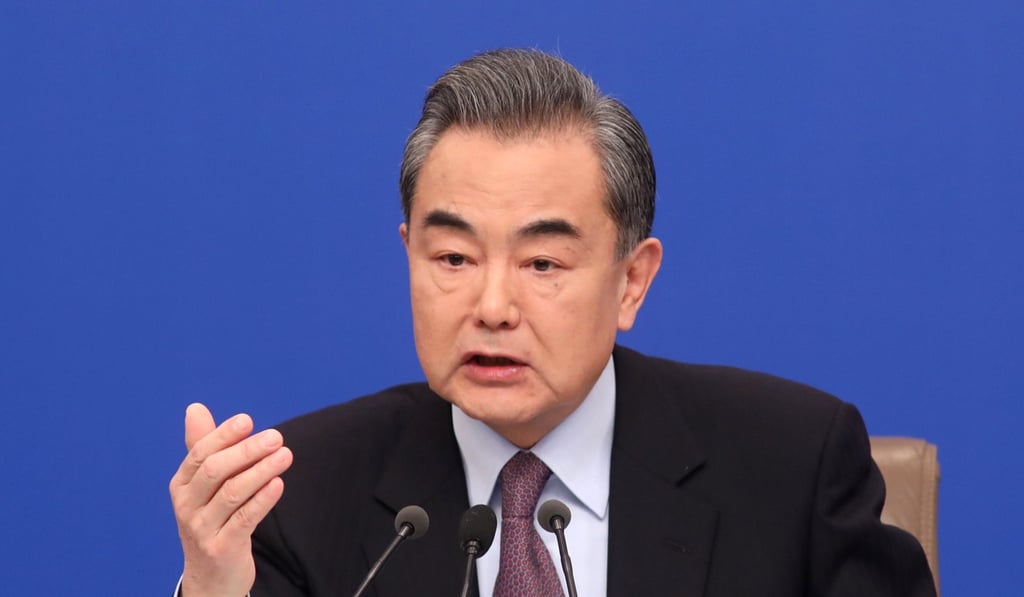Xi Jinping calls for ‘timely’ easing of North Korea sanctions after Trump-Kim meeting
- Chinese President Xi Jinping’s diplomacy in Pyongyang and Osaka may alter power dynamic on Korean peninsula

Chinese President Xi Jinping urged US leader Donald Trump to show “flexibility” and act in a “timely” fashion to ease sanctions on North Korea at the G20 summit last week – echoing Pyongyang’s high-stakes nuclear demands to Washington – according to Chinese Foreign Minister Wang Yi.
“[Xi] pushed for the US to show flexibility and meet the DPRK halfway, including the timely easing of sanctions against the DPRK and finding a solution to each other’s concerns through dialogue,” Wang said in Beijing on Tuesday, referring to the Democratic People’s Republic of Korea, North Korea’s official name.

His comments came just a few days after Trump’s meeting with North Korean leader Kim Jong-un on Sunday at Panmunjom, in the demilitarised zone dividing North and South Korea. Trump reaffirmed the international sanctions regime on North Korea, while the two leaders agreed that working-level talks on denuclearisation would resume.
Wang said China welcomed the meeting between Trump and Kim, describing the situation on the peninsula as a “rare opportunity for peace”.
He dismissed speculation that the surprise meeting had undermined Beijing’s influence over the region. “We hope that the political will of the leaders of the two countries can be translated into substantive progress in dialogue and negotiation as soon as possible,” he said.